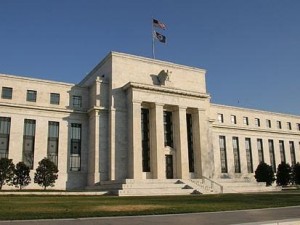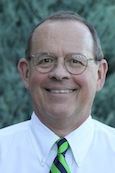Economy is just above stall speed
Louis S. Barnes | Oct 2, 2010
Another week, and the economy is still in a holding pattern. It can’t stay here forever, sustained by Treasury borrowing and spending $130 billion per month, tax revenue weak at all levels; but an unprecedented predicament brings uncertainty about new intervention, or patience, and unease that too much may have been done already.
 New claims for unemployment insurance, mortgage applications, ISM September survey, auto sales, two measures of consumer confidence — all just above stall speed.
New claims for unemployment insurance, mortgage applications, ISM September survey, auto sales, two measures of consumer confidence — all just above stall speed.
The argument inside the Fed has been hot, magnified by the experimental nature of all potential actions and inaction. The only powerful tool remaining to the Fed is to renew the outright purchases of securities with invented money, “quantitative easing.”
To QE, or not QE — that has been the question. Formal leaks this week make QE2 a done deal to be announced at the Federal Open Market Committee meeting the day after the election, amount and duration unknown. Many dismiss the whole operation as a money-printing inflation risk, or dollar debasement, or injection of more bank reserves into an inert system. Others (here) think — hope — it will be effective, bypassing broken banks, a central-line injection of cash into the economy’s heart.
Perfesser Bernanke has a tentative FOMC majority with the five other governors appointed by the President and Senate-confirmed, who tend to follow the Chairman. However, he needs public consensus, and the obstinate action is among the twelve regional-Fed presidents (five rotating as FOMC voters), who owe allegiance to their boards of directors — local citizens of highly uneven qualification and bias.
Kansas City’s Thomas Hoenig, soon to be the all-time champion of solitary dissent, reflects his Great Plains district board: no bubbles out there, and the Fed widely seen as a big-city conspiracy to steal from hard-working and self-reliant people.
Fed officials can’t seem to agree
This week three other regional presidents spoke, their texts concise and clear, posted on their bank websites (google the city and “Fed”). Their three world views mirror the divide today among analysts, the people and our political leadership.
Charles Plosser, Philadelphia: “Recovery continues on a sustainable path… I am not particularly concerned about low inflation per se … or even deflation. … I expect growth to be around 3% to 3.5%…” Unemployment is caused by “skills mismatch … and limitation in geographic mobility” beyond the Fed’s duty or power to influence. QE2 is unnecessary and likely ineffective.
Narayana Kocherlakota began his Minneapolis presidency this spring by saying that the economy could recover without housing, and unemployment was a problem of inadequate skills versus plenty of jobs. He has changed his mind: “The behavior of unemployment is deeply troubling. I now expect GDP growth to be around 2.4%,” down from the 3.0% predicted seven months ago.
Boston’s Eric Rosengren in August 2008 was the first to identify that tightening credit had more than canceled Fed easing. This week: “Job mismatches are not the problem … the percentage of small businesses with hard-to-fill jobs open is near the low over 25 years. Growth in the second half of 2010 is likely to be in the vicinity of 2%.”
And this: “Some observers say that there is little that policy makers can or should do. How should monetary policy respond to a slow recovery? My answer is: vigorously, creatively, thoughtfully, and persistently, and we do have options.”
I have just finished the splendid book, Lords Of Finance, the tale of central bankers from WWI to the 1930s, the best and brightest and best-intended applying the proven wisdom of the ages to maintain currency and financial stability. It starts slowly with character studies, like all books and movies about the Titanic, but you know there’s an iceberg out there somewhere.
In “Lords” you’ll find lines nearly verbatim to the bankers I’ve quoted above, hundreds more that could be transposed to today, and through all a failure of imagination, a suffocating inability to identify and react to a new situation.
 Commentary by Louis S. Barnes on mortgage, credit and business trends will appear periodically in Boulder Reporter. Lou is our credit-market oracle and will offer updates Fridays, written in the voice of a bond trader overdue for his martini. No fluff, no blue-sky predictions, afflicting partisans of all affiliations, real-time right-now news. Learn more about Lou at Premier Mortgage Group.
Commentary by Louis S. Barnes on mortgage, credit and business trends will appear periodically in Boulder Reporter. Lou is our credit-market oracle and will offer updates Fridays, written in the voice of a bond trader overdue for his martini. No fluff, no blue-sky predictions, afflicting partisans of all affiliations, real-time right-now news. Learn more about Lou at Premier Mortgage Group.

